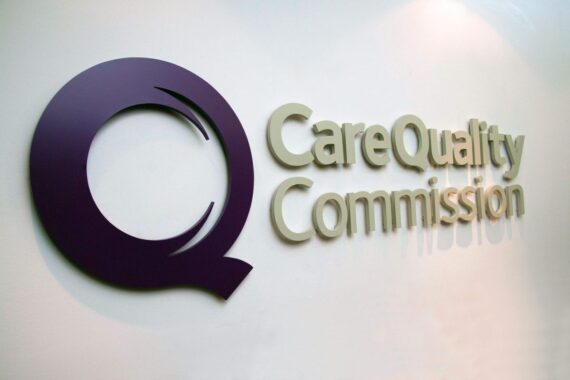The CQC inspection process may be ‘disproportionate’, a Government survey found, although the incredibly low response rate hampered conclusions.
All 51,000 providers registered with the CQC were given access to a survey as part of a post implementation review but only 86 responded and only 36 of those were NHS providers.
Most NHS responses to the survey came from organisations employing between 10 and 49 people, the review found.
The lack of engagement with the survey meant no conclusion could be reached about whether an alternative system would impose less regulation of the health and social care sector.
Criticisms among those who did respond included that the registration process is too inflexible, and the regulations too onerous and burdensome.
Some also felt the CQC regulations do not cover all health and social care activities where there is a possible risk to patient safety or service users.
‘CQC’s inspection process being too onerous was a common theme in the feedback received for both the 2009 and 2014 Regulations’, the review found.
A number of respondents felt that providers are treated unfairly, ‘highlighting inconsistent approaches between types of providers, unwarranted variations between inspection teams and bias against ethnic minority doctors and those serving ethnic minority communities’.
In responses to the review findings the CQC said it was aware that GP practices led by GPs who qualified overseas ‘might have disproportionately more challenges’ in meeting CQC requirements due to factors such as being located in inner city areas or working in single-handed practices.
They had started work in 2021 to look at how the regulatory approach impacts ethnic minority-led GP practices and to address those inequalities, the consultation response said.
This would also be taken into account as the regulator developed how it would assess ICSs including looking at ‘where local systems need to provide more support to ensure that primary care meets the needs of everyone in their population’.
The CQC also pointed to their new strategy using a ‘focused and targeted’ approach to risk lessening the burden on providers.
‘CQC’s risk-based approach means that it will only inspect providers on-site where it identifies a serious patient safety issue, and moves away from CQC’s previous approach where all providers were routinely inspected.’
The CQC unveiled details of its reduced inspections of GP practices at the start of this year, so that NHS staff can ‘focus on delivering for patients.’
It said it would ‘respond to only the most serious risks where there is a high risk of harm to people.’
It said it will ‘identify this risk through data,’ information of concern inspectors receive and intelligence they share with NHS England.
The survey responses will now be fed into a wider piece of work by the Department of Health and Social Care ‘to review and assess proposals to amend regulations relating to CQC’s oversight of regulated activities’.
‘If it is decided that amendments need to be made to secondary legislation, these will follow the applicable Parliamentary process, including an appropriate consultation’, the review said.
Pulse July survey
Take our July 2025 survey to potentially win £1.000 worth of tokens













Quite simple really! In Scotland no CQC inspection and no less safe, Conclusion, causes more harm than good therefore scrap it! Problem solved!
100% agree One shared building with joint use of defibrillator Maintained by 1 practice, same inspector at 2 different inspections passed one & failed second!!
One inspector failed Recuss gear, pointed out and evidenced her views differed from current National Guidance, still failed in final report!!
Utter muppets & glad left their employment.
And the latest CQC nonsense dreamed up whilst trying to pretend they have any relevance is that of adding ‘Enviromental sustainability’ to their inspection regime: details such as how do we encourage staff to walk to work? How do we reduce paer usage? How many green bins do we have? Whilst General Practice relentlessly subsides and becomes an increasingly unattractive career prospect.
Nobody will miss this pointless organisation as it inevitably fades into further irrelevance and the history books.
Shame on any GP s who worked for them. If you need more money do some honest locum work, last time I looked there was plenty about.
Dear All,
That response rate is 7.05 to power -4 (0.0007%). Speaks volumes for what the 51,000 regulated providers think of CQC. Utterly irrelevant.
Regards
Paul C